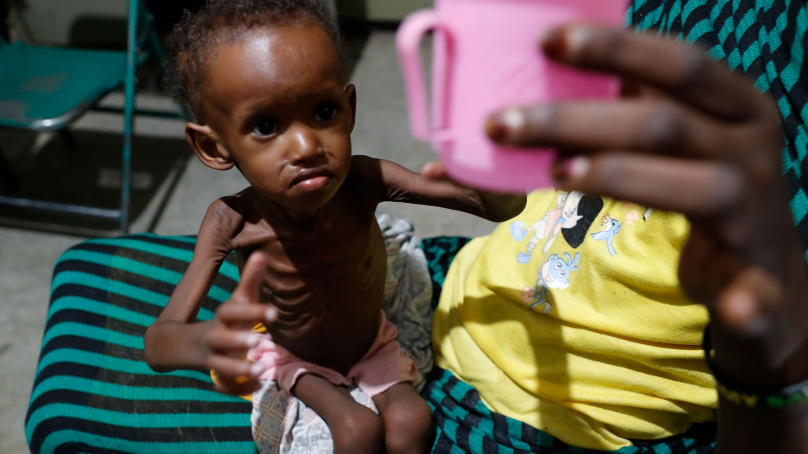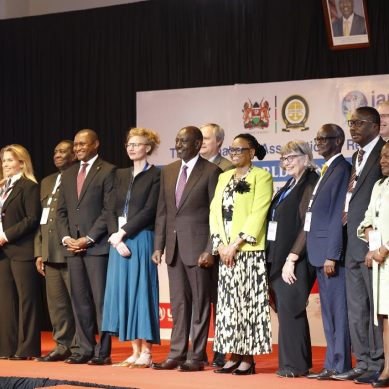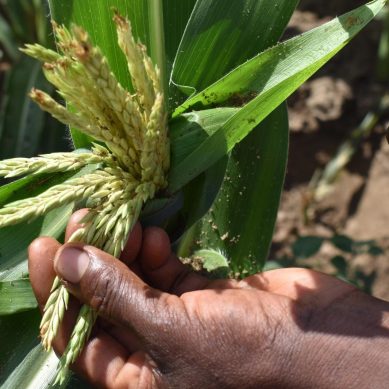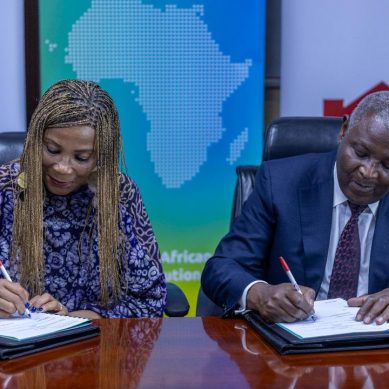
Sudan is not the only place where the Integrated Food Security Phase Classification or IPC has run into intense government resistance.
In June 2021, the IPC analysed the risk of famine in Ethiopia’s Tigray region, where paramilitary forces were then in the midst of violent conflict with government forces. The hunger monitor found that more than 350,000 people were in Phase 5, or catastrophic conditions.
Ethiopia’s central government challenged the IPC’s methodology and conclusions, but the IPC published its analysis anyway. It added a disclaimer: “This report has not been endorsed by the Government of Ethiopia.”
The government reacted furiously. It “perceived the publication as unilateral and unauthorised,” a senior government official, speaking on condition of anonymity, said. The government later expelled seven senior UN officials and blocked further IPC access in Ethiopia.
No IPC analyses have been performed in Ethiopia since, although the government official said talks recently began in an effort to improve relations between the government and the IPC.
Strong-arming of the IPC and the broader humanitarian relief system became severe in Yemen in 2023, when Houthi rebel forces who control the country’s north tried to exaggerate a hunger crisis to draw international humanitarian aid, four sources with knowledge of the situation told Reuters. Houthi rebels have been accused of massive aid diversion there.
The Houthis’ humanitarian arm handpicked data collectors in 2023 to conduct surveys to assess the population’s access to food, according to three sources from the UN’s WFP. It was not possible to learn specifics about how the data was collected.
The Houthis then used the data to press the IPC to say that many urban areas were experiencing food emergencies when in fact people had access to food and markets, said an IPC working group member, who spoke on condition of anonymity. The person said that Houthi officers threatened IPC members with consequences if they did not classify areas as the Houthis wanted. Houthi security forces have arrested and held incommunicado dozens of UN staff and employees of nongovernmental organisations.
In a written response to questions, the Houthi Supreme Council for the Management and Coordination of Humanitarian Affairs (SCMCHA) said the humanitarian crisis in Yemen is an “undisputed fact and not fabricated.”
“The data collection process was carried out in the required manner according to the standards agreed upon with the World Food Programme,” the SCMCHA said, noting that half of the data collectors were selected by the WFP.
It denied diverting aid and threatening aid workers and said the arrests of UN staff were lawful.
“These are false and untrue allegations,” the statement read. “We completely reject them. No pressure was exerted on the committee.”
A global IPC team reviewed the Houthi-collected data and found that it overstated hunger levels, three IPC sources said. The IPC decided not to publish the Houthi-led analysis. And because of security concerns, it did not publish its own evaluation, either, the sources said.
Even when the IPC’s work is unhindered and timely, donor countries often respond sluggishly to warnings of a food crisis. And conflict, closed borders and movement restrictions make it difficult to deliver aid. That can leave humanitarian agencies with too little money to keep hunger from worsening.
The world supplied only 39 per cent of the aid that agencies requested in 2023 to alleviate food insecurity and improve nutrition, according to UN data. This year is on track for only slightly better results.
Government officials from seven donor countries said they take note of the IPC’s reports, but they also weigh budgetary and political priorities, climate predictions, logistical hurdles to delivering aid, and the actions of other donors.
Germany would pay attention to an IPC Phase 4 or Phase 5 determination, said Andreas von Brandt, Berlin’s ambassador to the U.N. in Rome. But it wouldn’t guarantee a response. “Our funds are limited,” von Brandt said. “Even in the best years we wouldn’t have all the funds to suffice.”
The first famine the IPC identified – in 2011 in Somalia – illustrates the devastating toll when aid arrives too late.
Drought and armed conflict among militant groups fighting for control of the country’s south led to mass displacement and dire food shortages from 2010 through 2012. IPC analyses repeatedly warned of an imminent risk of famine.
Yet donors balked at sending relief to a region controlled by militants the US had labelled as terrorists. Humanitarian aid to the afflicted area dropped by half from 2008 to 2011, as aid workers came under attack.
Only after an IPC analysis found the area in famine in July 2011 did donor nations and organizations respond with a deluge of aid. By then, much of the damage had already been done.
It turned out to be one of the deadliest famines of the 21st century. An estimated 258,000 people – most of them children under 5 – died from hunger-related causes, according to a 2013 analysis commissioned by the UN Food and Agriculture Organization. Almost half died before famine was even declared, the study found.
The geopolitical roadblocks and the failure of the various arms of the humanitarian aid system to work together to prevent starvation frustrates Nicholas Haan, an American then working on the aid effort for the United Nations, 20 years after he came up with his idea to classify hunger.
“All of that comes crashing down on the woman and the girl and the young boy in Zamzam who can’t eat tonight, and there’s no reason why they shouldn’t be able to eat tonight, no reason at all,” he said.
- A Reutters report








